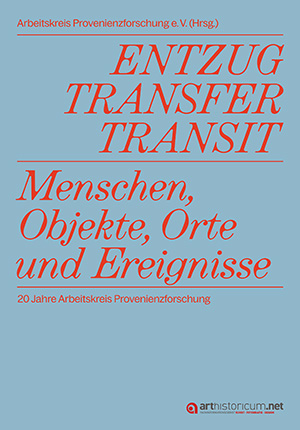How to Cite
License (Chapter)

This work is licensed under a Creative Commons Attribution 4.0 International License.
Identifiers (Book)
Published
Beutepraxis in der Sowjetischen Besatzungszone. Neue Quellen für die Provenienzforschung aus russischen und ukrainischen Archiven
The practice of taking booty in the Soviet zone of occupation: New sources for provenance research in Russian and Ukrainian archives
Documents in Russian and Ukrainian archives demonstrate that the Soviet occupation authorities not only wanted to requisition German cultural property as compensation for Russian cultural property seized by the National Socialists. Artworks requisitioned above and beyond them were intended to be offset against the damage caused by German occupiers in the Soviet Union. In this way, the Soviet experts involved sought to balance the cultural losses caused by sales to the West in the interwar period. Finally, Soviet requisitions of artworks must also be regarded as part of a comprehensive epistemological process of appropriation. In addition to cultural property, the Soviet occupation authorities further wanted to make use of scientific and industrial assets from their zone for rebuilding their home country. The archival sources which could be secured as part of a trilateral research project coordinated by the Europa-Universität Viadrina have been made available to the public in the library of the Leibniz-Zentrum für Zeithistorische Forschung (ZZF) in Potsdam.







